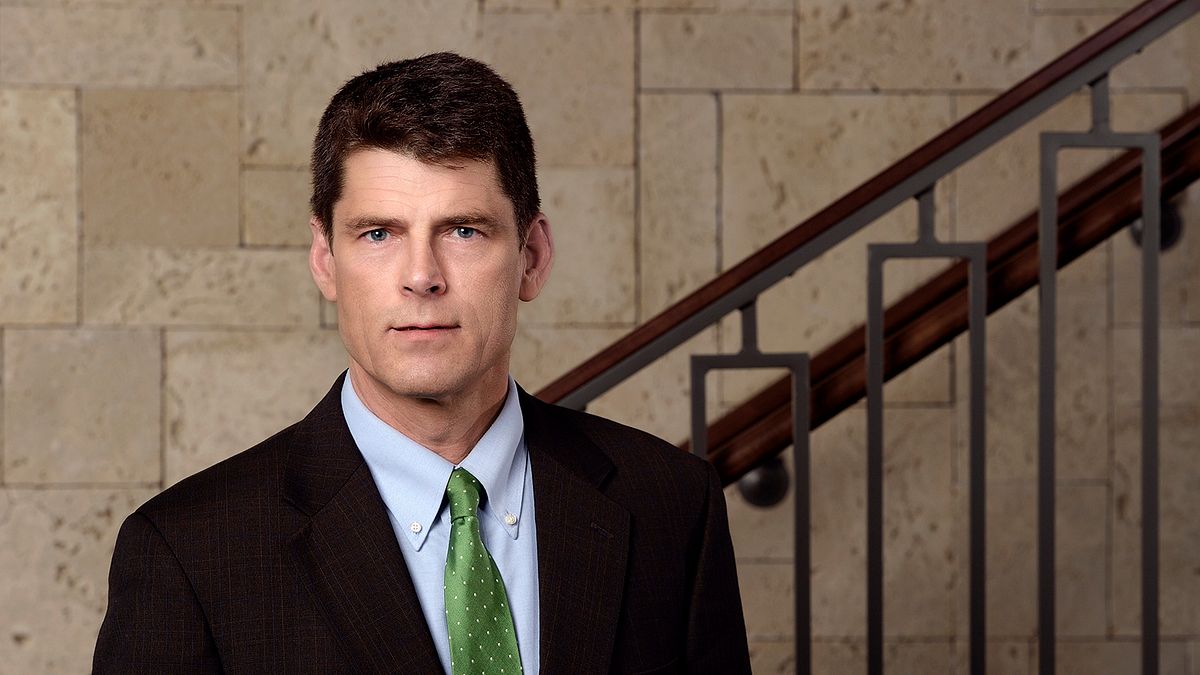
Written by Julie Park
John G. Powers is a civil litigator and trial attorney, who routinely appears in both federal and state courts, as well as in arbitration. He has been with Hancock Estabrook, LLP for more than two decades and has served a broad range of clients, including municipalities, business corporations, universities, and individuals. Recent cases he has litigated include several civil rights trials, a declaratory judgment defense of a municipal police and fire minority-hiring consent decree, and an international distributorship dispute. John has been honored as a Fellow of the American College of Trial Lawyers and recognized by The Best Lawyers in America. For more than ten years, John has also run a pro bono legal clinic for veterans in Central New York.
John is originally a native of Rochester, NY, who attended the United States Military Academy at West Point from 1984 to 1988, where he earned a Bachelor of Science in National Security and Public Affairs. He then served in the United States Army for five years as a light infantry rifle platoon leader and company executive officer. Towards the end of his military obligation, and just when he was contemplating the next chapter in his life, John was assigned a special duty to serve as an Article 32 Hearing Officer under the Uniform Code of Military Justice (UCMJ). An Article 32 hearing serves the same purpose as the civilian grand jury process, and as the assigned Article 32 Hearing Officer, John oversaw a court evidentiary hearing and prepared a detailed analysis and recommendation to his regimental commander as to whether probable cause existed to prefer criminal charges under the UCMJ. John recounted that while he had no legal experience at the time and felt somewhat overwhelmed by the assignment, he nonetheless so thoroughly enjoyed the process—including overseeing the court hearing and preparing his written legal analysis—that he started thinking about law school as a potential post-military option.
John ended up applying to law school and decided to return to his roots in upstate New York to attend Syracuse University College of Law. As a first-generation law student, John struggled at first. However, he managed to be in the top of his class while pursuing both his law degree and a master’s degree in public administration (M.P.A.) at the Maxwell School, working various jobs, and sharing the load of raising his children. When asked how he was able to excel in law school studies while handling so many different roles, John replied, “I treated law school as my job and also tried to get as much out of it as I could.” He also felt that because of his previous military stint, he was able to maintain a level perspective through the challenges of law school. Although John acknowledges that aptitude is a factor in being successful in law school, he added, “you can be extremely successful in law school just by working hard.”
While a law student, John was a member of the Syracuse Law Review, an avid intramural football player, and an active participant in trial and appellate advocacy competitions. John appreciates how his experience as a Notes and Comments Editor for the Syracuse Law Review reinforced the importance of attention to detail and a high standard of legal scholarship, both of which he has found to be indicia of a strong brief writer and a successful lawyer.
Upon graduation with both a J.D. and M.P.A. degree in 1996, John began his legal career as a federal judicial law clerk to the Honorable Judge Frederick J. Scullin, Jr., in the United States District Court for the Northern District of New York. While in law school, John was undecided as to which particular practice area he wanted to pursue. However, while John was serving for two years as a judicial law clerk, he realized that he had a calling to become a litigator. His law clerk experience would end up providing a strong foundation for a career in litigation because he was able to serve the adjudicative process from the other side of the bench, gaining insight into what resonates and what does not with chambers.
John, therefore, advises current students to “keep an open mind.” He views law school classes, summer internships, and even post-law school jobs as part of a continuum that provides an ever increasing body of information that eventually reveal which career path is best suited for any given individual. “There are two components to choosing,” said John. “One is determining what area interests you the most, and the second is determining what you are good at. Sometimes we lack aptitude in areas that we are truly interested in; and other times, we are really good at doing something that we may find to be tedious.” Keeping an open mind allows law students, or sometimes even young lawyers, to organically get to their career “sweet spot”—a field where both their interests and their aptitudes converge. Seemingly having to have found this balance himself, John said in closing, “I am very happy to be doing what I do, and I couldn’t imagine doing anything else. In fact, I don’t have any plans to retire because I love what I do.”
